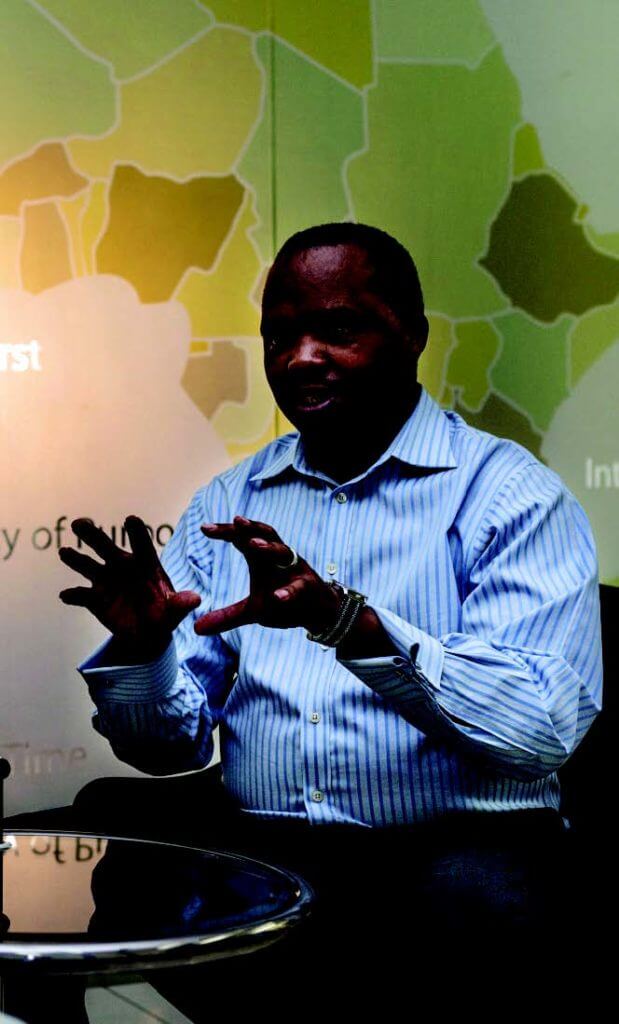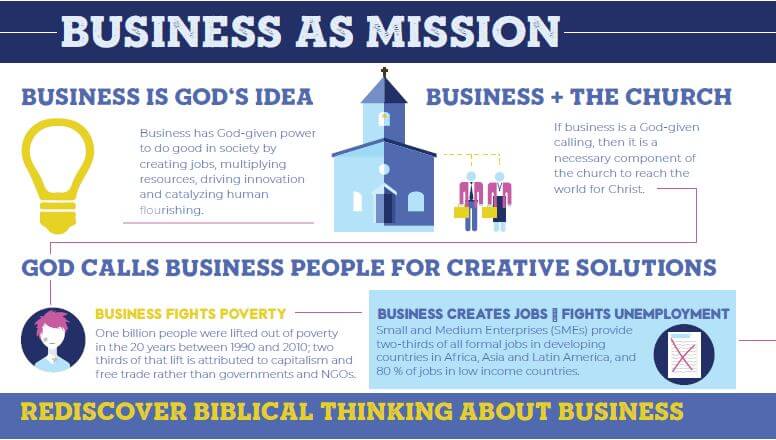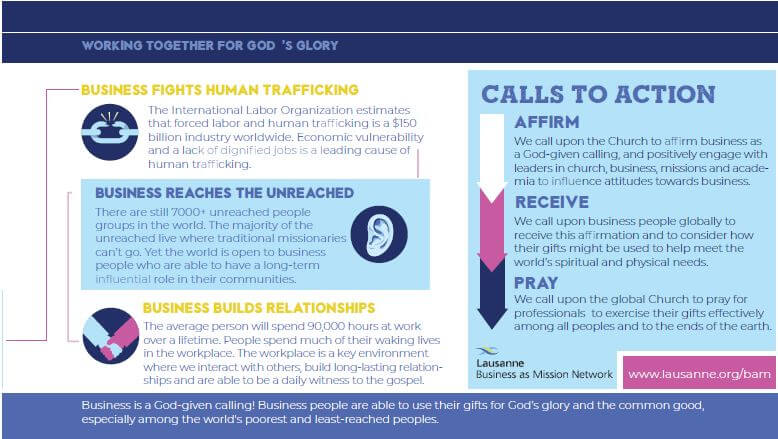What is the purpose of business?
By Septi Bukula
 What is the purpose of business?
What is the purpose of business?
When I was confronted with this question 14 years ago, I thought I knew the answer. I was attending a conference in Jakarta, Indonesia, with believers from around the world. After a week of discussions, we finally came to one conclusion: the purpose of business is to glorify God.
That was the beginning of a journey. The question that followed was: How does a business that glorifies God differ from a business that does not consciously seek to glorify God? It has taken years for me to arrive at some of the answers.
That said, I had a strong beginning in business and ministry, long before the term Missional Business (MB) was coined. My dad was a strange character—the only person I’ve ever known who was a full-time pastor, full-time business man, and full-time farmer. That’s how he raised his eight children. He and my mum led 20 local congregations on a circuit basis. Because of almost no pay, they had to find ways to make ends meet. My father told me, ‘Son, I am not using church money to run my family; I am using my family money to run the church.’
My dad went beyond subsistence, growing maize and raising livestock on a small-scale commercial basis. As kids, we were each given a large plot and were responsible to grow a commercial crop—cabbage or potatoes—doing everything necessary to bring it to harvest. We sold our crops at mini depots where my dad itinerated. We paid the homestead owner where we made the depot. My dad held us accountable for how we handled our money.
At harvest, my dad imposed a requirement. We had to pack a full bag of vegetables, then buy sugar, tea and cooking fat, and deliver this hamper to a poor family. Before I knew the word tithing, my parents taught me that if you have much, you are expected to share.
The prosperity gospel has done a lot of damage by teaching people that God exists purely to bless them. This is unbiblical. We are blessed to be a blessing! To be entrusted by God with a blessing is to be entrusted with the responsibility to share it – not just with family or immediate community, but with the rest of the kingdom. I encourage business people to ask themselves, “Do I see my business as mine, or as God’s business that He has entrusted to me to run?
A large universe of business people are not connected to missions. MB remains a conversation among a very narrow band of business people. As it were, missionaries and business people inhabit two different universes. I decided to organize an event that brought together people from these two worlds. Thus, Mission Invest Africa (MIA) took place in 2018 in Johannesburg.
Many erroneously believe that business and kingdom don’t mix, and this hinders great opportunities to advance the Kingdom of God. This disconnect emanates mainly from churches, which have created a divide between the sacred and the secular. One is made to feel that to be in business is not God’s highest calling. But the MB movements afoot today are righting this wrong.
Many are taught that we can compartmentalize our dealings into ‘my department’ and ‘God’s department’. Business falls under ‘my department’. We have failed to disciple business people into a missional mindset. They have grown up, even in our churches, thinking that business is just about getting rich. This is scripturally untrue.
What is true is that the earth is the Lord’s and everything in it (Psalm 24:1). Thus, business is the Lord’s. If you are running a business, it is God who has deployed you there. You are holding that part of His Kingdom on His behalf.
So, what do you think is the purpose of business? If you agree that it is to bring glory to God, what will that mean for your business today?


Septi Bukula is the CEO of Osiba Holdings, an economic development research, advisory and business tourism boutique firm, based in Johannesburg, South Africa. Join Mission Invest Africa: https://www.facebook.com/www.missioninvestafrica.osiba.co.za/
